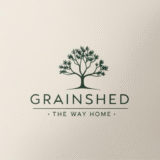Keeping & Breeding Poultry for Self-Sufficiency
Raising poultry is one of the most rewarding and practical aspects of creating a self-sufficient lifestyle. Poultry, whether chickens, ducks, quail, or other varieties, provides a consistent and reliable source of food, whether it’s fresh eggs or meat. Beyond food, poultry also plays a critical role in maintaining a healthy, sustainable environment on your homestead, offering natural pest control, and contributing to soil fertility.
Whether you’re a beginner looking to start small or an experienced homesteader seeking to diversify, raising poultry can be an integral part of your self-sufficient living plan. This guide will explore why poultry farming is so valuable and delve into the different types of poultry you can raise, along with links to more detailed resources on each type.
Why Poultry Are So Valuable to Self-Sustainable Living
Poultry farming is an essential component of any self-sufficient homestead. Poultry, particularly chickens, ducks, and quail, provide several benefits beyond just food. One of the key reasons poultry is so valuable is its versatility. Not only do chickens and ducks provide fresh eggs for consumption, but they also offer meat for meals, which can be especially valuable in a self-sustained lifestyle.
Poultry also contributes to the health of your garden and homestead. They help control pests by eating insects, weeds, and even small rodents, reducing the need for harmful pesticides. Their droppings are an excellent source of nitrogen for composting, enriching the soil, and fostering plant growth. Raising poultry requires minimal space, and they adapt well to various climates, making them a practical choice for many types of homesteads.
Additionally, poultry is generally low-maintenance compared to larger livestock, making it ideal for both beginners and experienced homesteaders alike. Raising poultry can also provide an opportunity to generate income if you produce enough eggs or meat to sell, contributing to your overall self-sufficiency.
Chickens
Chickens are the most common and popular choice for poultry farming due to their versatility and ease of care. Whether you’re looking to raise chickens for their eggs or for meat, they provide a valuable and reliable source of food. A small flock of hens can produce a steady supply of eggs, while roosters can be raised for meat production.
In addition to their food value, chickens are natural foragers and help control pests in your garden. They will happily scratch through your soil, eating insects and weeds, while fertilizing the ground with their droppings. This makes chickens an excellent companion for organic gardening, reducing the need for chemical interventions.
Chickens are easy to manage, even for beginners, and can thrive in both rural and suburban settings. They’re hardy animals and can adapt to a variety of climates, although providing them with proper shelter and protection from predators is essential.
Ducks
Ducks are another fantastic option for self-sufficient living, offering both eggs and meat. Like chickens, ducks are easy to care for and highly productive, but they have additional benefits that make them unique. Ducks are excellent foragers, and they love to eat snails, slugs, and other pests that might be harmful to your garden. They also enjoy foraging in muddy areas and can help aerate and enrich your soil.
Duck eggs are larger and have a richer flavor than chicken eggs, making them a valuable addition to your diet. Their meat is flavorful and lean, providing another excellent food source. Ducks are particularly well-suited to homesteads with access to a pond or water source, as they enjoy swimming and can help keep water areas clean.
Ducks are also known for being hardy and low-maintenance, but they do require more water than chickens, so providing a suitable space for them to bathe and forage is essential.
Quail
Quail are a smaller, more compact option for those with limited space but still seeking to raise poultry for self-sufficiency. These tiny birds are prized for their eggs and meat, both of which are considered delicacies. Quail are particularly well-suited to small homesteads, urban farms, or backyard settings, where they can be kept in cages or small enclosures.
Despite their size, quail are prolific egg layers, often producing up to 300 eggs per year. Their eggs are rich in flavor and nutritional content, and they can be used in a variety of recipes. Quail meat is tender and lean, making it an excellent source of protein for your homestead.
Quail are relatively easy to care for, requiring a secure environment to protect them from predators. They are also less demanding in terms of space, making them ideal for those starting out with poultry farming or looking for a more manageable option.
Other Types of Poultry
In addition to chickens, ducks, and quail, there are many other types of poultry that can be raised for self-sufficiency. These include turkeys, geese, guinea fowl, and more. Each type of poultry has unique benefits, from providing larger quantities of meat to offering different flavors of eggs.
Turkeys, for example, are ideal for homesteads looking to raise poultry for larger meat production. They are generally easy to manage, though they do require more space and protection from predators. Guinea fowl, on the other hand, are excellent foragers and are known for their ability to control insect populations, making them a great addition to gardens and orchards.
Raising a variety of poultry can help diversify your homestead, providing different types of eggs, meats, and other benefits, all while enhancing sustainability and self-sufficiency.
Raising poultry for self-sufficiency offers countless benefits, from a steady supply of eggs and meat to natural pest control and soil improvement. Whether you’re starting with chickens, ducks, or quail, poultry farming is a rewarding and sustainable way to enhance your homestead. For more detailed information on each type of poultry, be sure to visit our dedicated pages and discover how to incorporate them into your self-sufficient lifestyle.
